5 Reasons to Expand Your Manufacturing Business into Lagos, Nigeria
01 January, 2025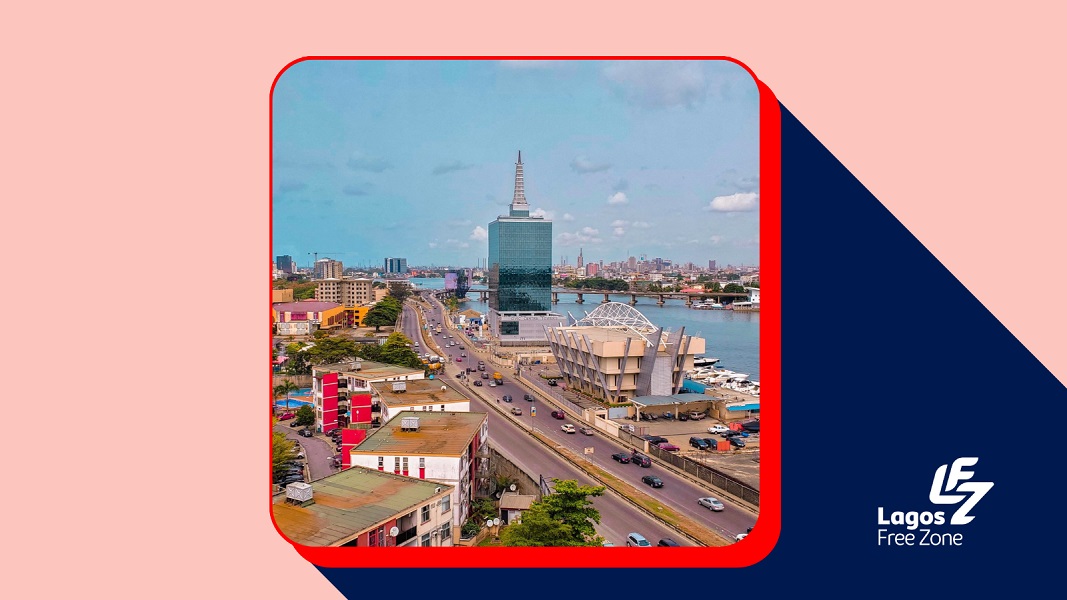
In the last several decades, Lagos, Nigeria’s bustling economic capital (source: agosstate.gov.ng), has emerged as a powerhouse in West Africa, presenting opportunities for international investors, particularly in the manufacturing sector. The city's thriving business landscape, strategic location and forward-thinking government initiatives make it an ideal destination for companies looking to expand their footprint in the West African region and on the African continent.
Lagos began solidifying this position in the late 1990s and early 2000s, following Nigeria's return to civilian rule (source: cfr.org) in 1999. This political stability after decades of tussle led to significant economic reforms, attracting both local and international investment. Already a major port city, it became a central hub for trade and commerce due to its strategic location along the Gulf of Guinea. Later in the 2000s, Lagos saw rapid urbanisation, population growth and an expanding middle class, further increasing its economic influence. By the 2010s, Lagos had transformed into one of Africa's most important financial and commercial centres, with the government investing in infrastructure projects and establishing special economic zones, such as the Lagos Free Zone, to attract manufacturing and technology companies.
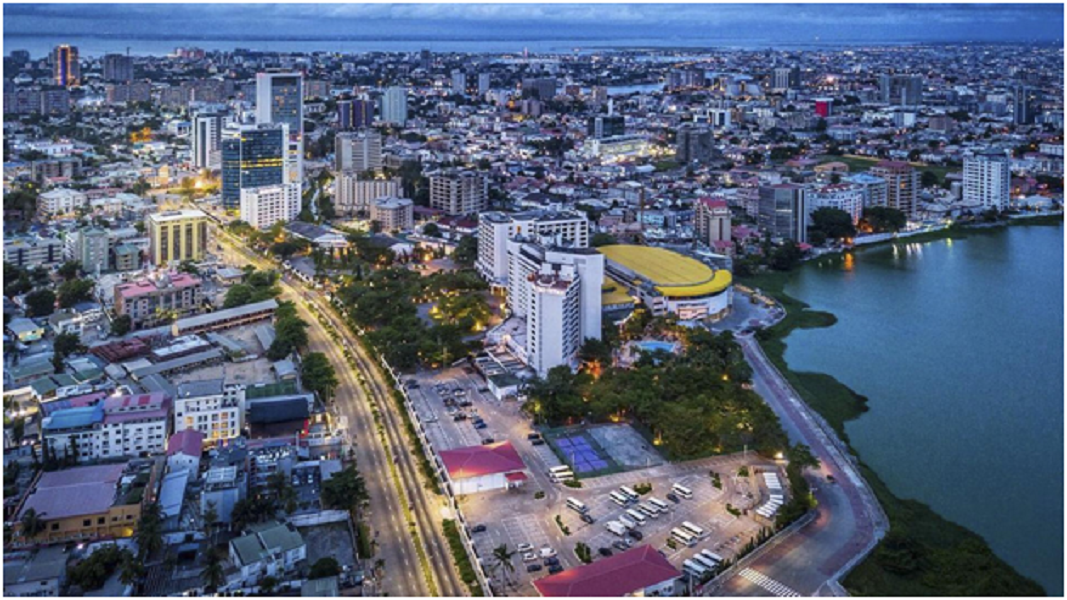
Lagos Island at Night | Source: Discover Lagos (source: discoverlagos.ng)
Building on this robust foundation, today’s Lagos offers even more compelling reasons for investors to consider its vast opportunities. For investors keen on leveraging Africa's industrial potential, here are five reasons why Lagos, Nigeria should top the list of locations.
1. Access to a Large Consumer Market
With over 16 million (source: worldpopulationreview.com) residents—a 3.7% increase from 2023—and a rapidly expanding middle class, Lagos offers one of Africa's largest and most diverse consumer markets. As consumer purchasing power rises, so too does the demand for manufactured goods, from consumer electronics to packaged food, creating a fertile ground for manufacturers to thrive.
Nigeria’s youthful population—over 60% of whom are under the age of 25 (source: unfpa.orgunfpa.org)—fuels demand for products across multiple sectors, including automotive, electronics and household items. Lagos’ diverse demography also allow companies to target various consumer segments. Manufacturing businesses can cater to both the luxury market and the budget-conscious buyer, adapting their products and marketing strategies to fit the unique demands of the region.
According to PwC, Nigeria's household consumption expenditure is projected to grow by 5.1% per year (source: strategyand.pwc.com), translating to billions in potential revenue for businesses positioned to meet this demand. Stren & Blan (source: strenandblan.com)’s recent Nigerian FMCG sector report states that the overall retail sales are projected to hit around $160 billion by 2027 (source: strenandblan.com), growing steadily alongside the expanding middle class with rising disposable incomes.
2. Strategic Location and Connectivity
Lagos serves as a central economic hub in West Africa, offering easy access to regional markets across the continent. The city’s extensive transport network, including the Murtala Muhammed International Airport and the bustling Lagos seaports—including the new Lekki Deep Sea Port (source: lekkiport.com), one of the deepest in West Africa, located in Lagos Free Zone—enhances its logistics and distribution capabilities. For manufacturers, proximity to other West African countries, such as Ghana, Côte d'Ivoire and Senegal, means goods can be transported swiftly, reducing supply chain bottlenecks and logistical costs.
This location advantage is further bolstered by the Lagos Free Zone (LFZ), Nigeria’s first privately-owned Special Economic Zone (SEZ) (source: nepza.gov.ng), which provides seamless connectivity to global markets through its deep-sea port. LFZ’s direct access means businesses operating here have a clear logistics advantage to enter neighbouring markets and establish Lagos as a regional distribution centre.
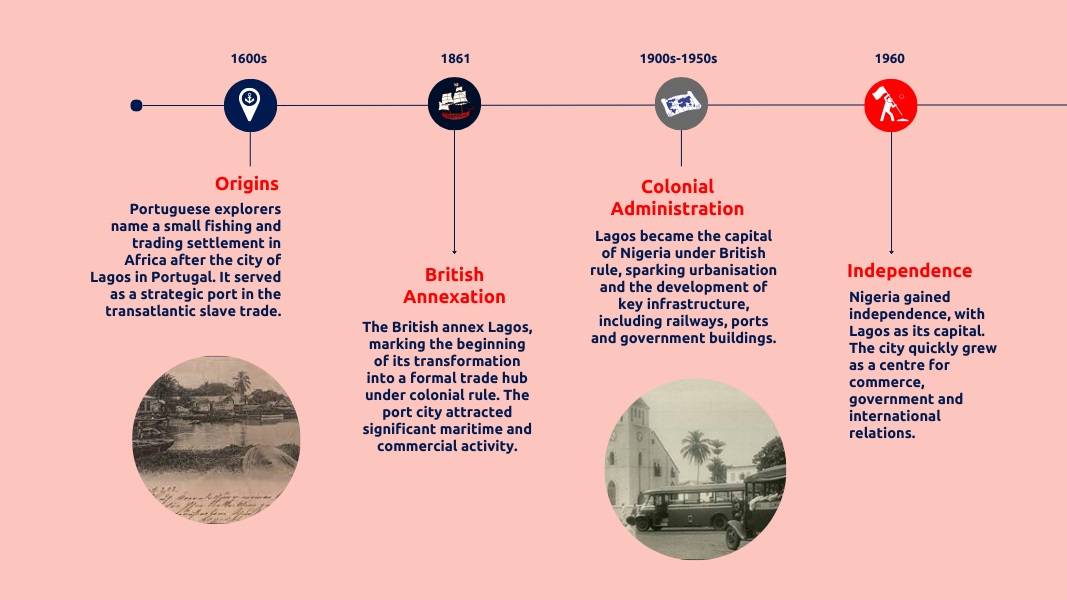
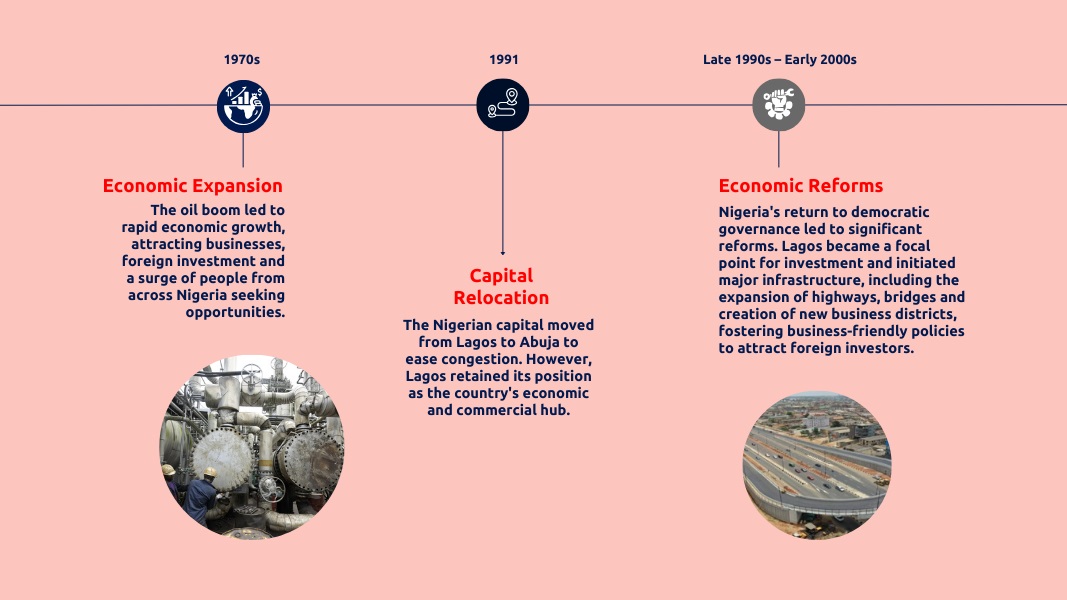
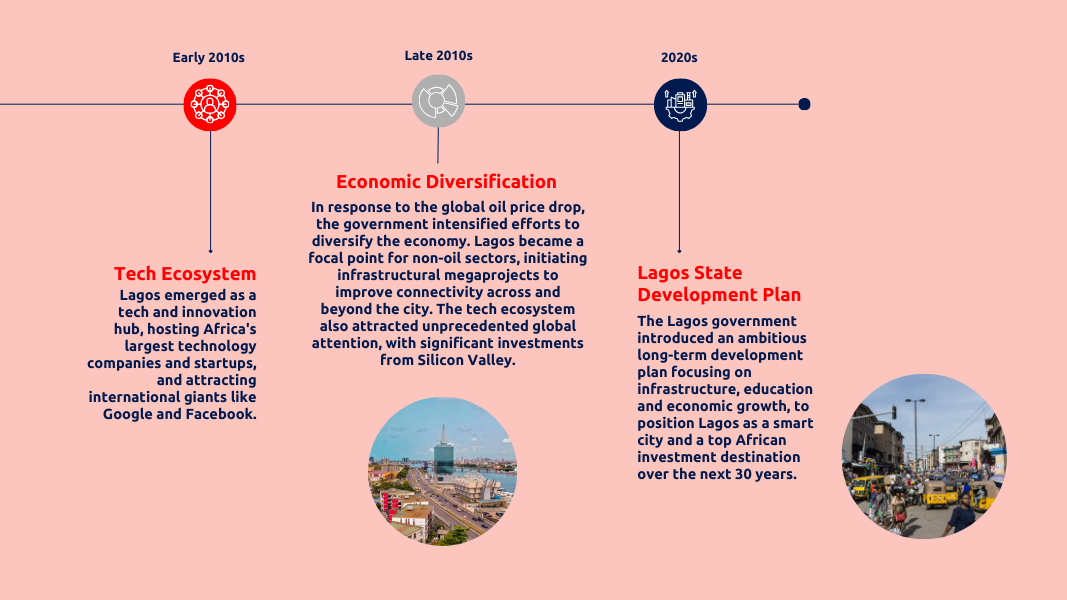
The full timeline of Lagos's historical journey to becoming a powerhouse in West Africa
3. Favourable Business Environment
The Lagos State government is committed to creating a business-friendly environment (source: tribuneonlineng.com) to attract foreign investors. The government has introduced policies and reforms designed to streamline business registration, reduce regulatory complexities and enhance transparency. Key initiatives include the Ease of Doing Business Reforms, which amongst other initiatives, reduced the time required to register a business in Lagos by over 50%.
In addition to state-level efforts, Nigeria's current federal government is also making strides. During a meeting with Coca-Cola’s global leadership in September 2024, President Tinubu emphasised his commitment to enhancing Nigeria’s financial system to attract foreign direct investment (FDI) (source: thisdaylive.com). The administration is focused on creating an economic framework that simplifies business operations, including seamless entry, profit repatriation and reinvestment, to build investor confidence.
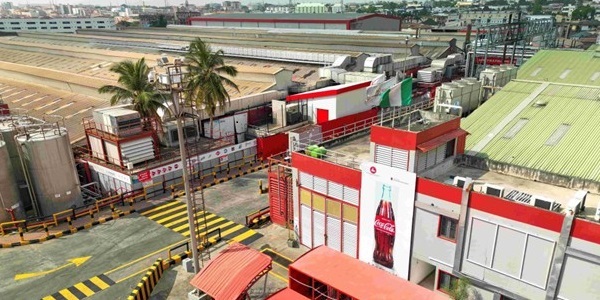
The Coca-Cola Company Ikeja Plant in Lagos | Source: Coca-Cola HBC
A testament to this commitment, Coca-Cola which is situated in Lagos, pledged an additional $1 billion (source: punchng.com) investment in capacity expansion, the transformation of supply chain infrastructure capabilities, training and development over the next five years, building on its $1.5 billion investment since 2013. John Murphy, The Coca-Cola Company’s Global President and Chief Financial Officer, stated that they generate ₦320 billion ($180m) annually with nearly 300,000 customers. President Tinubu’s dedication to public-private partnerships and progressive reforms underscores his government’s vision of a robust, sustainable economy driven by both international and domestic investment.
The Lagos Free Zone and other Special Economic Zones (SEZs) also offer incentives like tax holidays, duty-free importation and unrestricted foreign ownership, making them particularly attractive for manufacturing businesses. Companies like Kellogg’s, BASF and Colgate-Palmolive have already established operations within the LFZ, leveraging these incentives to optimise their production and distribution processes. By setting up operations in theLagos Free Zone, international investors can enjoy reduced operational costs and focus their capital on expansion and product innovation.
4. Supportive Infrastructure Development
Lagos has made significant strides in infrastructure development, creating a conducive environment for industrial activities. Projects like the Lagos-Ibadan railway, the Lekki Deep Sea Port, and ongoing upgrades to road networks (source: thisdaylive.com) have improved connectivity and reduced transportation costs. These infrastructure investments are essential for manufacturers, as they ease the movement of staff, raw materials and finished products, reduce delays, and boost overall productivity.
The state government in 2024 has outlined a robust budget and financing plan to address infrastructure and other developmental goals. The 2024 budget stands at ₦2.267 trillion ($1.33b), with ₦550 billion ($323m) (source: nairametrics.com) designated for infrastructure projects, which includes road construction, rail expansions and completion of ongoing transportation projects like the Blue and Red Line metro systems.
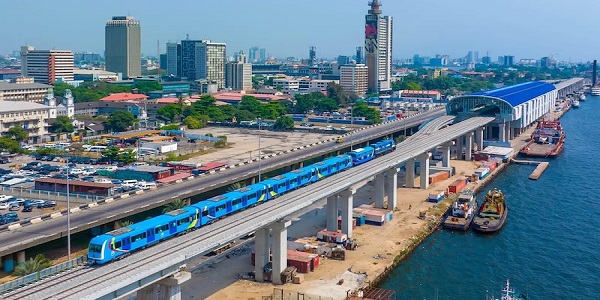
Aerial view of The Blue Line, Lagos Rail Mass Transit system | Source: Daily Post
In the Lagos Free Zone, advanced infrastructure, including reliable power and water supply, well paved roads and level grounds, and dedicated support facilities (police station, medical centre, fire station etc), make operations more efficient, secure and enjoyable. The ongoing construction of the Lekki-Epe International Airport (source: centreforaviation.com) will further enhance accessibility, making it easier for investors to manage their operations and monitor production facilities.
5. Thriving Technology and Innovation Ecosystem
Lagos is home to one of Africa’s most vibrant technology scenes (source: ft.com), making it a compelling destination for businesses aiming to leverage tech-driven solutions in their manufacturing processes. The city’s innovative ecosystem fosters collaboration between tech companies, research institutions and industrial businesses, providing manufacturers with access to a pool of skilled talent in engineering, machinery automation and maintenance. From network and systems administration to supply chain management software, the solutions local tech companies generate enhance productivity and drive efficiency in manufacturing.
Lagos boasts tech hubs like Yaba, known as the birthplace of several prominent African startups (source: startupguide.com0, and initiatives such as the Lagos Innovates (source: lagosinnovates.ng) programme, which encourages tech startups to collaborate with larger industries. Manufacturing companies can benefit from these synergies, incorporating cutting-edge technology into their operations to stay competitive. For instance, Andela (source: andela.com), a tech talent enablement company headquartered in Lagos, train and outsource highly skilled software engineers who can aid manufacturers in optimising their systems and services.
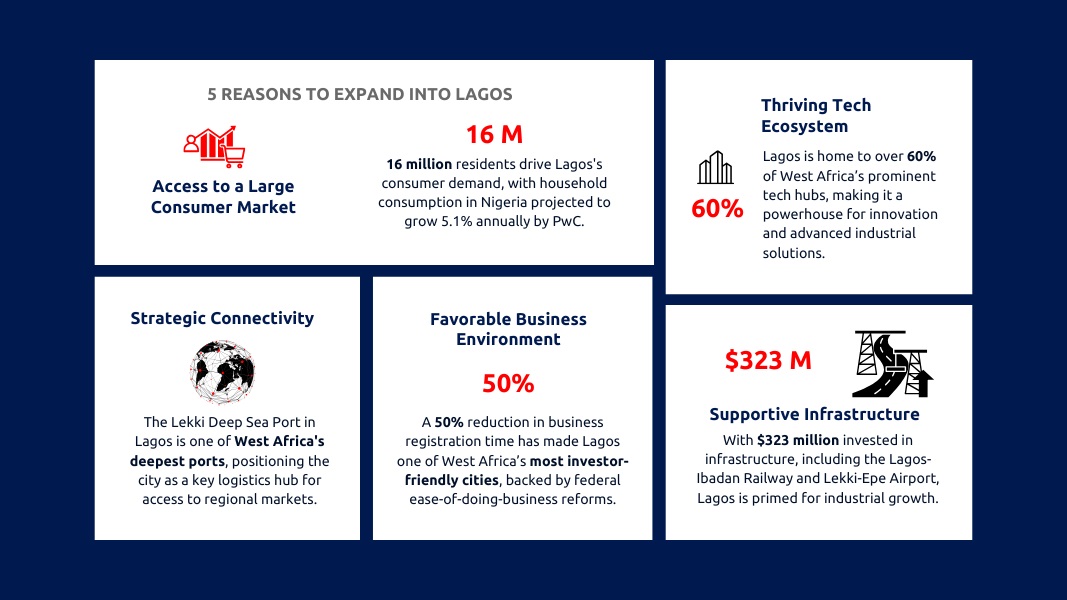
How can Lagos Free Zone Unlock your Potential in the region?
For international investors looking to tap into Lagos' market potential, the Lagos Free Zone offers a streamlined import-export process designed to minimise red tape. The Lekki Deep Sea Port and logistics hubs further enhance the Zone’s appeal, enabling investors to integrate more effectively into regional and global supply chains. The LFZ’s focus on manufacturing sectors also aligns with Nigeria’s broader industrialisation goals (source: nationalplanning.gov.ng) to compete globally in the production of manufactured and processed goods.
Investors can take advantage of LFZ’s ready-to-use facilities, infrastructure support and access to a rich concentration of skilled labour force in Lagos, thus positioning themselves as major players in Africa’s industrial future.
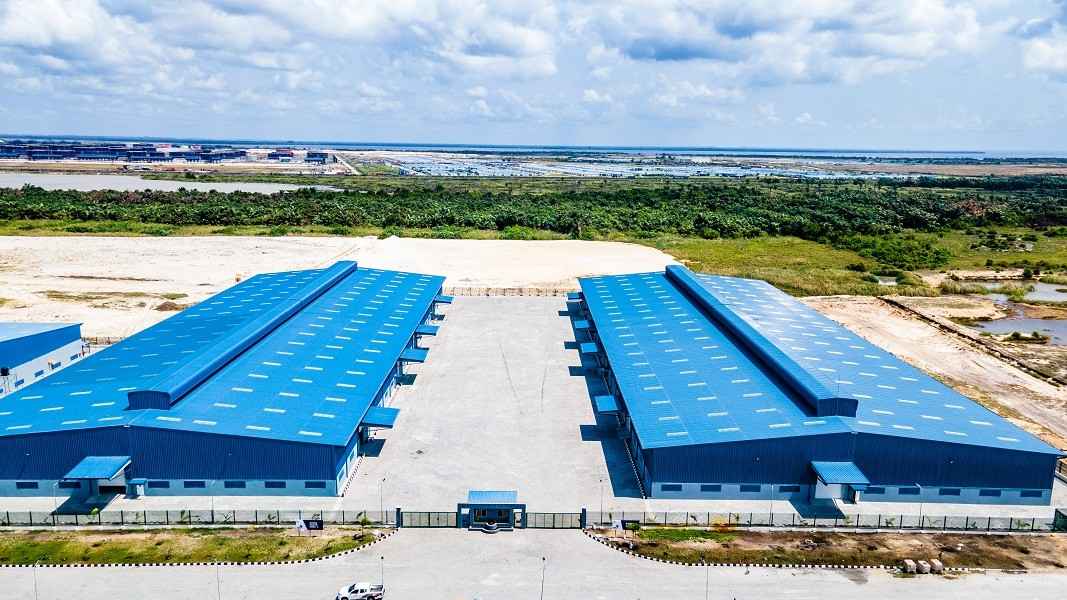
One of the Lagos Free Zone’s pre-built warehouses | Source: Lagos Free Zone
Lagos is a dynamic environment for manufacturing businesses. Its large consumer market, strategic location, business-friendly policies, innovative tech ecosystem and robust infrastructure form a solid foundation for industrial growth. Investors ready to setup in Africawill benefit from Lagos, and particularly the Lagos Free Zone - Your Gateway To A New Frontier.


